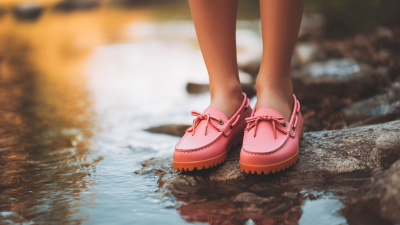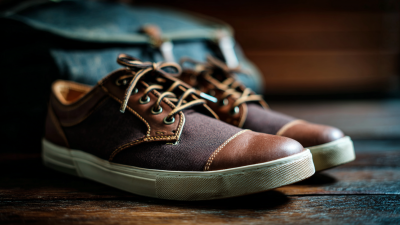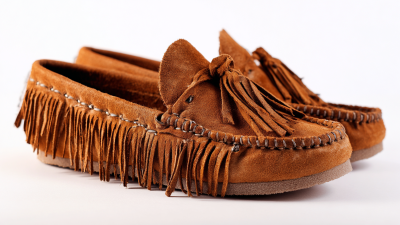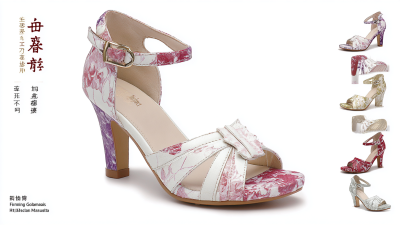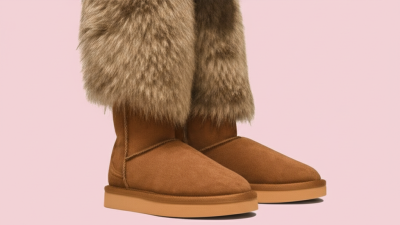In 2023, the footwear industry is witnessing a significant transformation driven by various factors, including climate change and shifting consumer preferences. The rise of sustainable fashion has increasingly influenced the design and purchasing decisions surrounding Women Winter Shoes. According to a recent report from the Fashion Institute of Technology, approximately 72% of women prioritize sustainability as a crucial factor when selecting winter footwear, highlighting a broader trend among consumers to align their choices with environmental consciousness.
As climate change continues to affect weather patterns and conditions, manufacturers are adapting their strategies to produce footwear that not only meets aesthetic demands but also ensures functionality and comfort in diverse climates. A study by the Global Footwear Association indicates that sales of insulated, waterproof boots designed for harsh winter conditions have surged by 45% in the last year alone. This substantial increase emphasizes the growing need for Women Winter Shoes that can withstand extreme weather while incorporating innovative materials that reduce environmental impact.
In light of these trends, the focus on multifaceted, eco-friendly designs is reshaping the landscape of winter footwear. This article will explore the top five trends in Women Winter Shoes, discussing how the intersection of climate awareness and consumer demand is not only altering styles but also promoting a responsible approach to winter fashion.

In 2023, the women's winter footwear market is witnessing a significant shift towards sustainability, driven by the growing awareness of climate change and its impact on the environment. Consumers are increasingly seeking shoes made from eco-friendly materials, such as recycled plastics, organic cotton, and sustainable leather alternatives. Brands are responding to this demand by innovating with materials that not only minimize environmental impact but also enhance durability and comfort. This shift demonstrates a collective commitment to responsible consumption, as women opt for footwear that aligns with their values.
Moreover, advancements in technology are allowing brands to create stylish yet sustainable options that do not compromise on performance. Waterproof textiles made from recycled materials are becoming a staple for winter shoes, ensuring that they can withstand harsh weather conditions while reducing waste. Additionally, many brands are adopting transparent supply chain practices, giving consumers insight into the ecological footprint of their footwear choices. This trend not only fosters trust but also empowers women to make informed decisions, reinforcing the connection between personal style and environmental stewardship in the realm of winter footwear.
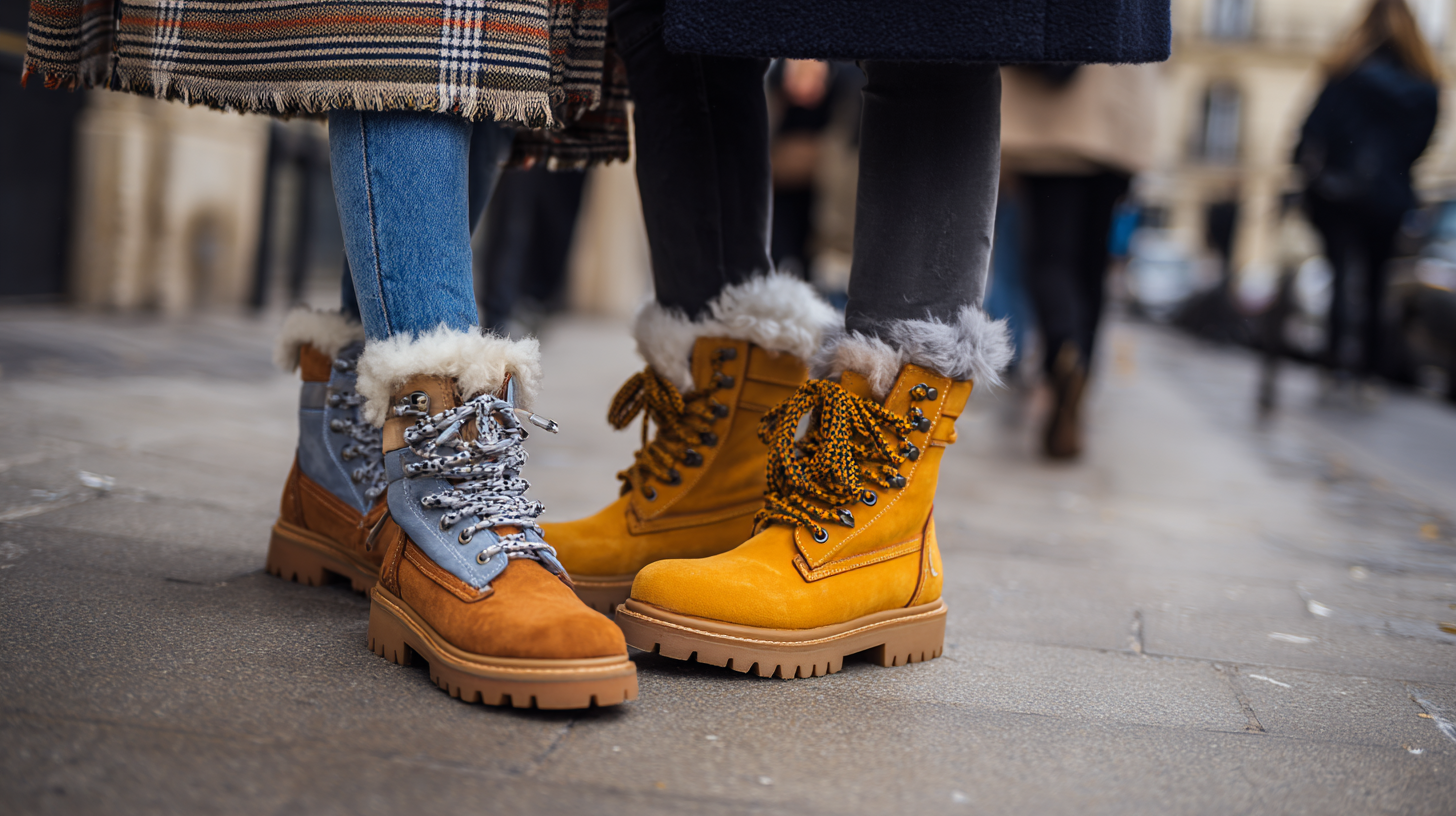
As climate change continues to reshape our environment, the footwear industry is adapting by incorporating innovative insulation technologies in women's winter shoe designs. Brands are increasingly focused on creating eco-friendly options that not only provide warmth but also minimize environmental impact. Advanced materials like recycled fibers and plant-based insulators are becoming popular, offering sustainable alternatives without sacrificing comfort or style. These developments reflect a conscious effort to cater to the environmentally aware consumer.
When selecting winter shoes, consider the insulation technology. Look for options that highlight thermal efficiency and breathability, ensuring your feet stay warm and comfortable without overheating. Additionally, check for certifications that indicate sustainable manufacturing processes, as these products often reflect a commitment to reducing carbon footprints. Investing in shoes with removable insoles can also enhance longevity and allow for customization, making them versatile for varying winter conditions.
Lastly, pay attention to the sourcing of materials. Many brands are now using ethically sourced elements that support local communities and reduce environmental damage. By choosing footwear that prioritizes sustainable practices, you contribute to the push for a greener planet while also stepping out in style this winter.
The chart above illustrates the consumer interest in various features of women's winter shoes influenced by climate change and advancements in insulation technologies for 2023. The data highlights the growing preference for recycled materials and innovative insulation techniques.
As climate change continues to reshape our environment, footwear choices for women are increasingly influenced by the need for both style and functionality. According to a 2023 report by the Footwear Distributors and Retailers of America (FDRA), winter shoe sales have surged by 15% over the past year, with consumers prioritizing resilient materials and versatile designs to combat unpredictable weather patterns. Brands are responding to this shift by creating stylish yet functional footwear, integrating waterproof technologies and insulated linings that cater to the demands of various climate conditions.
The intersection of fashion and functionality is evident in collections that combine aesthetic appeal with essential features. For instance, purchases of sustainable materials, such as recycled plastics and eco-friendly leathers, have risen by 25% among consumers who value both stylistic choices and environmental responsibility. As reported by Allied Market Research, the global market for sustainable footwear is expected to reach $60 billion by 2027, highlighting a significant trend toward environmentally conscious purchasing decisions. In 2023, it's clear that women’s winter shoes must not only look good but also perform reliably in diverse weather conditions, thus meeting the evolving needs of today’s consumers.
In 2023, the landscape of women’s winter shoes is increasingly shaped by consumer awareness regarding climate change. Shoppers are now more informed about the environmental impact of their choices, prompting brands to adapt and innovate. Sustainable materials and ethical manufacturing processes are not just buzzwords; they are becoming the norm as consumers actively seek out eco-friendly footwear. This shift is driving a trend toward stylish yet sustainable options, such as shoes made from recycled materials or those designed for longevity, encouraging shoppers to invest in quality over quantity.
Tips for choosing sustainable winter shoes include looking for certifications like Fair Trade or organic labels that ensure environmentally-friendly practices. Additionally, explore brands that prioritize transparent supply chains, allowing you to understand the sourcing and production processes behind your footwear. Finally, consider investing in classic designs that won't go out of style, as these can reduce the frequency of purchasing new shoes, ultimately benefiting both your wardrobe and the planet.
As awareness of climate issues intensifies, women's winter shoe markets will likely continue to evolve, reflecting a robust commitment to sustainability while meeting the demands for style and comfort.
| Trend | Description | Consumer Awareness Factor | Impact on Choices |
|---|---|---|---|
| Sustainable Materials | Increase in the use of eco-friendly materials like recycled plastics and organic cotton. | High awareness of environmental impact among consumers. | More purchases of shoes made from sustainable resources. |
| Weather-Resistant Designs | Footwear engineered to withstand extreme weather conditions. | Growing knowledge about climate variability. | Preference for multifunctional winter footwear. |
| Vegan Options | Rise in shoes that avoid animal products, promoting cruelty-free options. | Increasing demand for ethical consumption. | Higher sales of vegan winter shoe styles. |
| Comfort and Performance | Focus on ergonomic designs and comfort for all-day wear. | Awareness of health impacts of footwear. | Increased interest in athletic and lifestyle-centric winter footwear. |
| Technology Integration | Incorporation of smart technology for enhanced user experience. | Consumer fascination with innovation. | Adoption of trendy, tech-enabled winter footwear options. |
In 2023, the shift towards climate-conscious footwear is more pronounced than ever, with innovative brands leading the charge in creating women’s winter shoes that prioritize both style and sustainability. These footwear companies are stepping up to the challenge posed by climate change, employing materials that reduce environmental impact and embracing ethical manufacturing practices. From biodegradable materials to eco-friendly packaging, these brands aim to inspire consumers to make more informed choices when it comes to their winter footwear.
When selecting winter shoes, it’s essential to consider the materials used. Opt for brands that utilize recycled or sustainable resources, such as organic cotton or recycled plastic, which help minimize your carbon footprint. Additionally, pay attention to the production process—support companies that ensure fair labor practices and a transparent supply chain.
Moreover, investing in versatile designs can promote a more sustainable wardrobe. Look for shoes that can seamlessly transition from casual outings to more formal occasions, reducing the need for multiple pairs. This not only promotes a more minimalist approach but also encourages longevity in your footwear choices. Remember, mindful shopping can contribute significantly to a healthier planet while keeping you stylish and warm.

